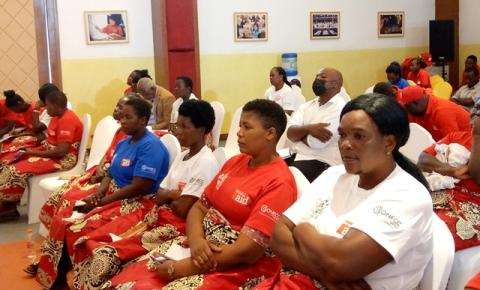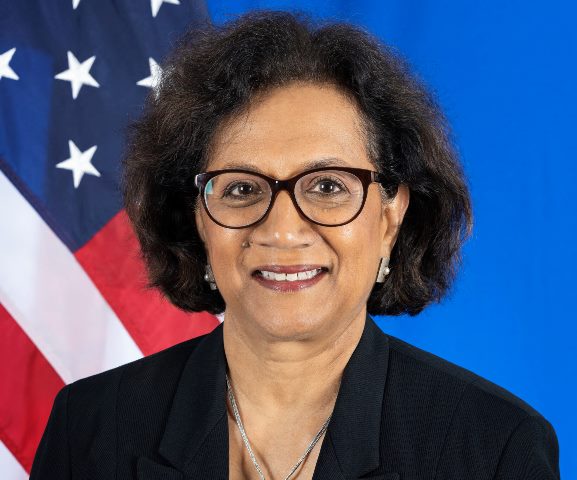
Authored by U.S. Ambassador David Young and Dr. Geeta Rao Gupta Ambassador-at-Large for Global Women’s Issues at the U.S. State Department.
This month marks the beginning of the 16 Days of Activism Against Gender-Based Violence, starting with the International Day for the Elimination of Violence Against Women on November 25, and culminating with Human Rights Day on December 10.
These two markers symbolize what we know to be true: achieving gender equality is not possible without addressing gender-based violence, a human rights abuse that holds back women and girls in all their diversity from fully and safely participating in social, economic, and political life. Ultimately, gender-based violence harms all of us, regardless of who experiences it, and prevents our communities from reaching their full potential.
What does it mean for us to put anti-violence values into practice each day, in all aspects of our lives? What does it look like for government, civil society, business, and every part of society to say that enough is enough – we will no longer tolerate gender-based violence?
These are questions we should all be asking ourselves in our homes, our communities, and our countries. Gender-based violence continues unabated in every region of the world, at all levels of society.
The United States is committed to addressing this vast and complex problem that limits the ability of survivors of gender-based violence to fully enjoy their rights in the United States and around the world. We recognize the critical linkages between gender equality—including prevention and response to gender-based violence—and democracy, national security, economic security, climate change, global public health, and human rights.
This is why, over the last two years, the United States has prioritized development and implementation of the U.S. National Strategy on Gender Equity and Equality and updated the U.S. Strategy to Prevent & Respond to Gender-Based Violence Globally and U.S. Strategy on Women, Peace, and Security.

Gender-based violence not only has a physical, emotional, and social cost, but leads to lost income and revenue. In some countries, gender-based violence is estimated to cost up to 3.7% of their Gross Domestic Product – more than double what most governments spend on education.
Recent evidence from sub-Saharan Africa found when gender-based violence increases by 1 percent, economic activity drops by 9 percent. In contrast, when domestic violence decreases by 1 percent, per capita economic activities increase by 8 percent. Reducing gender-based violence in Malawi will lead to more wealth for the country.
The economic costs from gender-based violence are caused by lower labor supply, reduced productivity, absenteeism, staff turnover, and less investment in human capital for both women and children. The violence that women experience makes it more difficult for them to achieve or maintain a job, including ganyu and the informal market.
In Malawi, domestic violence increased during the 2015/2016 El Nino event and during the COVID-19 pandemic. With the current macroeconomic situation and ongoing El Nino, now, more than ever, we need to work together to achieve equality for women and girls and support Malawi to equitably grow the economy.
It’s crucial that in our collective efforts we understand the full gender-based violence continuum – where, when, and how it occurs – and take steps to ensure access to life-saving services for all survivors. Prevention of gender-based violence also requires that we promote justice and accountability for these acts and establish an enabling environment – rather than a limiting one – for all survivors of gender-based violence to thrive.
This year also marks the 75th anniversary of the Universal Declaration of Human Rights, a milestone document affirming that every human being is born free and equal in dignity and rights, and that these rights exist without distinction of any kind. We could not agree more, and we call upon governments, civil society, private sector companies, and individuals alike to join us in helping create such a world – for the sake of our communities today and tomorrow.




